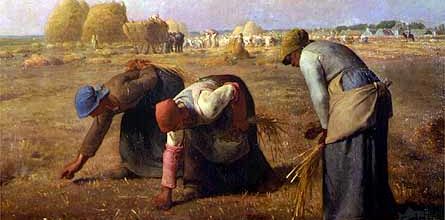Under construction (21 December, 2024)
Here you’ll find introductions and interviews that may serve as rough-and-ready guides to ideas elaborated in Capitalism in the Web of Life. You can also find the book’s introduction, in English and many languages.
2025. Nature & Other Dangerous Words: Marx, Method and the Proletarian Standpoint in the Web of Life, in Capitalism in the Web of Life (10th anniversary edition, 2025).
Capitalism in the Web of Life – and the wider world-ecology conversation in which it’s embedded – is a relentless effort to make world-historical sense of capitalism through such a method. Its ontology is the labor process as the active and metabolic relation that makes human sociality, and that it is refashioned and redirected under the bourgeoisie’s class rule. It was first articulated by Marx and Engels in 1840s. Marx amplified those arguments throughout his life, especially in Capital. Their arguments refused Green Arithmetic – adding up Man, Society and Nature – because that method, and reinforces, the real relations of primitive accumulation and capitalism managerialism. It separates in thought the historical separation of the direct producers from the means of livelihood and reproduction. The question of method is for this reason not a trivial matter. The dialectical method is fundamental to the class struggle and the philosophy of praxis on the “real ground of history.”
2022. How to Read Capitalism in the Web of Life: Towards a World-Historical Materialism in the Web of Life, Journal of World-Systems Research 21(1), 153-168.
On the one hand, we find a capitalist “universality” as a “world-historical… empirically verifiable” movement—a tendency that “makes all nature… [the] inorganic body” of capital. On the other, its dialectical counter-tendency and potential negation: communism. This is not a “state of affairs” but the “real movement… [of] the proletariat, [which] can only exist world-historically… directly linked up with world history.” Communism becomes “the real movement which abolishes the present state of things,” allowing the “associated producers” (and reproducers!) to “govern the human metabolism with nature in a rational way.” All of which animates the method of world-historical investigation fundamental to Web of Life and the wider world-ecology conversation. To recapitulate: the specificity of human social relations is foregrounded through its metabolic relations with and within webs of life, one in which human work is itself a “natural force.” The dialectical implication of this method is straightforward. Just as human work involves a dialectical transformation—in acting “upon external nature… [she] changes it, and so simultaneously changes [her] own nature” (emphases added)—so class society emerges by acting upon external natures, and in so doing changes its own nature. Modes of re/production, I other words, emerge through webs of life, and acquire their distinctive properties through such environment-making—a process in which class society is a product as well as a producer of webs of life. Web of Life’s charge was not to assert this point theoretically—which had after all been done—but rather to take the methodological implications of the dialectical imagination as a guiding thread for world-historical reconstruction.
Translations
2017. Çifte İçsellik, giriş, Hayatın Dokusundaki Kapitalizm: Sermaye Birikimi ve Ekoloji (Istanbul: Epos Yayinlari), 11-53. (Çeviren: Alaz Munzur.)
Bu kitabın odak noktası kapitalizmdir: Para. İklim. Gıda. Emek.
Başka bir deyişle bu kitap, sermayenin birikim mantığını, kapitalizmin tarihini ve kapitalist uygarlığın tarihini incelemektedir. Kapitalist uygarlık, insanları doğadan ayrıştırmadı, aksine bireysel hayatları sıkı sıkıya birbirine bağlayarak geniş coğrafyaları kapsayan bir hayat dokusunun içine yerleştirdi. Kapitalizm, hayatlarımızı, kahvaltılarımızı, çalışma günlerimizi, amaçlarımızı, cinsiyetlerimizi, emek sömürüsünü, kadınların ücretsiz çalıştırılmasını ve köleleştirilmesini, doğanın talan edilmesini dünya-tarihsel etkinlik sürecindeki parçaları haline getirdi. Çevreci, feminist ve Marksist düşünceye dayanan Jason W. Moore Hayatın Dokusundaki Kapitalizm ile yerleşik ekoloji görüşlerinde tanınmayan bir sentez sunuyor: Kapitalizm, doğa, iktidar ve zenginlik bileşiminden oluşan bir “dünya-ekolojisidir”. Elbette ekolojik sorunlarımızın kaynağı, kapitalizmin ucuz emek, ucuz gıda, ucuz enerji ve ucuz hammadde (: kâr-daha fazla para ve iktidar) yaratma kapasitesidir. Sermayenin (Dört Ucuzlar yani) emek, gıda, enerji ve hammaddeden yararlanma kapasitesi Dünya-ekolojisini/kapitalizmi ve nihayet hayatın dokusunu oluşturur: Dünya-ekolojisi tam olarak sermayenin/iktidarın üretim/para kazanma ve yönetme süreçleri ve biz sıradan insanların da çalıştığı, amaçlarının peşinden koştuğu, milliyetlere, cinsiyetlere, kültürlere ayrıldığı gündelik hayatın ta kendisidir. Dünya-ekolojisi kapitalizmdir. Kapitalizm, genelde görmeye alıştığımız gibi dar bir ekonomik ve sosyal ilişkiler bütününden ibaret değildir, kapitalizm daha ziyade, hayatın bütününe yerleşmiş olan sermayenin, iktidarın ve üretim/yeniden-üretim süreçlerinin dünya-ekolojisi olarak anlaşılmalıdır. Kapitalizm ve doğa kavramı içiçe geçmiştir. İnsanlar ise bu dokunun içine hapsolmuştur. Bu kitap bir davettir. İnsanlığın doğada işgâl ettiği yeri, bu yerin tarihe bakışımızı nasıl etkilediğini, ekolojik kriz analizini ve tüm hayatın kapitalizmden özgürleştirilmesi tartışmasına davettir.
